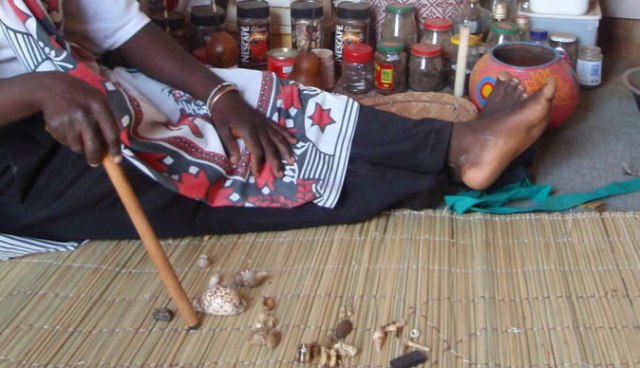Kwazulu-Natal Catholic Bishops Issue Stern Warning Against Mixing Ancestral Rites with Church Practices
On Sunday mornings, townships, suburbs, and villages across Kwazulu-Natal come alive with the rhythm of Catholic life. Families rise early, children tug at polished shoes, elders clutch rosaries in their uniforms, and the scent of incense drifts from parish halls as the faithful congregate for Mass.
Yet, for many worshippers, the spiritual week does not end at the church doors. At home, ancestral rituals continue. Goats and chickens are slaughtered to honour ancestors, and traditional healers are consulted, reflecting a practice that has long coexisted with Catholic devotion.
For generations, these two worlds—Catholic faith and African spiritual heritage—have existed side by side, woven into everyday life. But Kwazulu-Natal’s Catholic bishops are now sending a clear message: such blending of traditions, known as syncretism, will no longer be tolerated within the Church.
In a rare joint pastoral letter dated September 16, Archbishop Siegfried Mandla Jwara of the Durban Archdiocese, alongside eight fellow bishops, condemned the mixing of Catholic teaching with African spiritual practices such as ubungoma (divination). The three-page letter explicitly forbids priests and laypeople alike from seeking the guidance of izangoma (traditional healers), offering animal sacrifices to ancestors, or integrating traditional rituals into the sacraments.
“It is grievous and a source of profound sorrow that some Catholic priests and religious are reported to engage in these practices,” the bishops wrote. “Any involvement in practices that contradict Catholic teaching constitutes a grave betrayal of sacred trust.”
The statement outlines four main areas of concern: consulting traditional healers, attributing divine powers to ancestors, engaging in spirit possession or fortune-telling, and merging these rituals with Catholic worship.
“The sacraments derive their power from Christ, not from any human tradition,” the bishops emphasised. “No priest has the authority to introduce elements from other religions into the liturgy.”
Clergy who continue these practices could face suspension or removal from their clerical roles. Lay Catholics, meanwhile, are called to repentance.
The tension between Catholic orthodoxy and African spiritual heritage is not new. Since the arrival of missionaries in the 19th century, many converts have struggled to reconcile baptism and Mass with ancestral rites of healing, protection, and remembrance. To address this, the Catholic Church introduced inculturation, a process aimed at integrating core religious beliefs into local culture. Yet the tone of the new letter signals a return to stricter orthodoxy.
The letter carries the weight of nearly the entire KwaZulu-Natal episcopate. Alongside Archbishop Jwara, it is signed by Cardinal Wilfrid Napier, Apostolic Administrator of Eshowe; Bishop Graham Rose of Dundee; Bishop Stan Dziuba of Mzimkhulu Diocese; Bishop Neil Frank of Mariannhill Diocese; Bishop Thulani Mbuyisa of Kokstad; Bishop Vusi Mazibuko, Vicar Apostolic of Ngwavuma; and Bishop Elias Zondi of the Durban Diocese.
By speaking with one voice, the bishops leave little room for ambiguity. “The offering of sacrifices to ancestors in a manner that attributes divine power to them borders on idolatry and sins against the First Commandment,” the letter states, quoting extensively from Canon Law and the Bible.
The comprehensive pastoral letter forbids any practice of spirit invocation, divination, or spirit possession, including consultation with clairvoyants, palm readers, tarot card practitioners, and similar services.
The bishops also issued a list of specific practices that are prohibited:
- Slaughter of chickens for ritual purposes.
- The use of coloured water or candles in ritual contexts.
- Blessing of oil outside liturgical practice.
- Non-liturgical wild dancing.
- Healing and ritual services conducted outside the Mass.
While the letter’s precise catalyst remains unclear, it follows years in which the Catholic Church has experimented with blending African cultural expressions into worship. Some parishes have incorporated drum rhythms and ululation into hymns, yet the approach varies widely, and some priests have embraced ubungoma.
In 2019, the Church initiated research into ubungoma to explore pastoral, theological, and cultural responses. Earlier this year, it released its first report, marking a continued effort to engage with traditional practices, albeit under stricter doctrinal guidance.
Attempts to obtain comment from Archbishop Jwara, currently attending the Interregional Meeting of Bishops of Southern Africa in Eswatini, were unsuccessful at the time of publishing.
For many Catholics in KwaZulu-Natal, the letter represents a turning point—a firm reminder from Church leaders that, while culture enriches worship, it must not override the sacred traditions and teachings of Catholicis

Follow Us on Twitter











